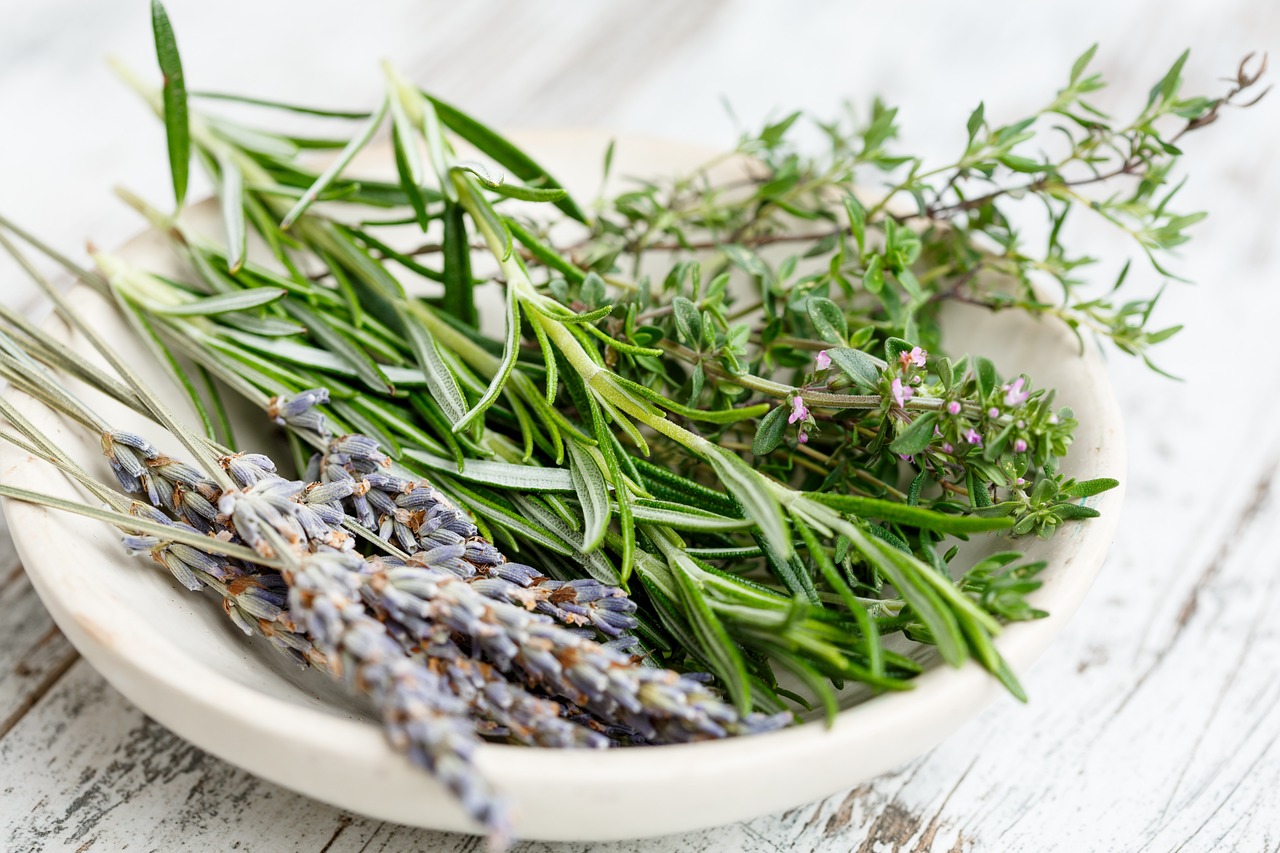8 Science-backed Rosemary Tea Benefits That Will Amaze You
Rosemary tea covers a wide range of nutritional values. From boosting digestion to improving brain health, here are some of the most amazing rosemary tea benefits.

Rosemary (Rosmarinus officinalis) is a fragrant and versatile herb. Rosemary tea benefits have been implemented for centuries in traditional medicine and culinary practices. Scientifically, it belongs to the Lamiaceae family and originated from the Mediterranean region. This aromatic herb is replete with health benefits such as memory enhancement, supporting digestion, anti-inflammatory actions, and potential anti-cancer properties (1). Rosemary contains several bioactive compounds, including rosmarinic acid, caffeic acid, and essential oils like cineole (2).
Rosemary benefits the overall well-being of a person. Its potent antioxidant properties protect cells from cellular damage caused by free radicals. Studies suggest that rosemary may enhance cognitive function and memory, making it a promising herb for brain health (3). It is also known to have anti-inflammatory effects.
Furthermore, rosemary benefits have been associated with improved digestion, relieving gastrointestinal discomfort. Its antimicrobial properties aid in the fight against certain bacterial infections (2). Additionally, rosemary has shown potential anti-cancer properties in laboratory studies, though more research is needed to determine its effectiveness in humans (1).
Overall, incorporating rosemary into your diet or consuming rosemary tea can provide a wide array of benefits, promoting both physical and mental well-being. Before we dig deeper into the benefits of rosemary tea, let’s understand more about its nutritional value.
What Is Rosemary Tea?
Rosemary tea is a herbal infusion made from the leaves of the rosemary plant. Rosemary tea benefits consist of its aromatic and therapeutic properties. We’ve already mentioned that scientifically, rosemary tea contains several bioactive compounds that contribute to its health benefits. Among these elements, rosmarinic acid possesses antioxidant and anti-inflammatory properties, and essential oils such as cineole have antimicrobial effects. While brewing rosemary tea, these compounds are released, which makes it beneficial for health.
Nutritional Value of Rosemary

By now we know that rosemary is a herb that not only adds flavor to dishes but also offers notable nutritional value. So now let’s discuss rosemary benefits in detail.
This fragrant herb is a good source of dietary fiber, providing around 14% of the recommended daily intake per 100 grams (4). Rosemary is also considered to be loaded with essential minerals such as iron (Approx 62% per 100 grams), calcium(around 317% per 100 grams), and potassium(around 26% per 100 grams) (5).
These compounds contribute to bone health, the production of red blood cells, and balancing electrolytes in the body. The presence of vitamins like vitamin A (roughly 20% per 100 grams), vitamin B6 (about 28% per 100 grams), and vitamin C ( approx 61% per 100 grams), adds more to the benefits of rosemary. Together, these help to boost immunity, brain health, and eyesight. Additionally, rosemary contains potent antioxidants like rosmarinic acid and carnosic acid, which help combat oxidative stress and thus protect the body from cellular damage (5).
However, the nutritional values that are listed above may vary depending on certain varieties of rosemary herbs.
Top 8 Amazing Health Benefits of Rosemary Tea
Consuming rosemary tea can offer various advantages. The nutritional compounds present in this herb provide maximum benefits when steeped. Below are the various health benefits of rosemary tea:
1. Has Antioxidant Properties
Studies revealed that rosemary had the highest TPC (total phenolic content), TFC (total flavonoid content), and antioxidant potential after being boiled for 15 minutes (6). As discussed earlier, the antioxidants present in the tea help protect the body's cells from oxidative damage caused by free radicals, thus supporting overall health.
2. Has Antimicrobial Properties
The benefits of rosemary tea can also be found in its antimicrobial properties, which could potentially assist in the prevention and treatment of certain infections. Additionally, the tea is believed to aid digestion, alleviating symptoms like indigestion and bloating (1).
3. May Help Boost Brain Health
Some studies suggest that rosemary tea may have cognitive benefits, potentially enhancing memory and cognitive function (3). It may also have anti-inflammatory properties, which could be beneficial for individuals dealing with inflammatory conditions.
4. May Aid Weight Management
Rosemary tea is packed with phytochemical components that help hinder the function of lipase — a pancreatic enzyme responsible for breaking down fats into lipids. As a result, fat breakdown is prevented, leading to a feeling of fullness and potentially preventing overeating and weight gain (5).
5. May Help Prevent Cancer
Rosemary contains healthy compounds like rosmarinic acid and caffeic acid, which may help support the treatment of cancer. Caffeic acid is especially found in rosemary tea. Both rosmarinic and caffeic acid possess antioxidant and anti-proliferative properties that fight harmful free radicals and strengthen the body’s immune system (1).
6. May Help Relieve Stress
Our day-to-day hectic schedule can take a toll on our mental health and cause stress and anxiety. Incorporating rosemary tea into your diet can have a substantial impact on your stress levels. Ursolic and rosmarinic acids present in rosemary tea have potent antioxidant and anti-depressant properties that help rejuvenate the body and calm our minds. Additionally, it assists in relieving stress, managing burnout, and alleviating anxiety (5).
7. May Improve Skin Health
Rosemary tea is packed with antioxidants and antimicrobial phytochemicals that help keep the skin healthy and glowing. Drinking rosemary tea or applying it topically can help you effectively treat bacterial infections, acne, blisters, and fungal infections (1).
8. May Stimulate Hair Growth
Those looking for a remedy for hair loss can reap the benefits of rosemary tea. You can use rosemary to rinse your hair and fight various problems like hair fall, dandruff, grey hair, and so on. Rosemary has antioxidant properties that help in the thorough cleansing of the scalp and prevent any build-up, leaving you with smoother and healthier tresses (5).
How to Make Rosemary Tea: Easy Steps to Follow

By now, we know that rosemary benefits can be best extracted from its tea. So let's not waste any more time and get into the process of preparing one hot cup of aromatic tea brimming with goodness.
- Ingredients: Gather fresh rosemary sprigs or dried rosemary leaves, water (8 ounces per serving), and optional sweeteners such as honey or lemon.
- Know the Right Amount: 1 tablespoon of fresh rosemary leaves or 1 teaspoon of dried rosemary leaves per cup provides the right balance of flavor and potential health benefits. You may adjust the amount as per your taste preference.
- Preparation: If you are using fresh rosemary, rinse the sprigs under cool water and gently pat them dry. Strip the leaves from the stem and roughly chop them. In the case of dried rosemary leaves, ensure you have measured the appropriate amount mentioned in point 2.
- Steep the Rosemary Leaves: Boil the required amount of water. Place the rosemary leaves in a teapot, tea infuser, or cup. Pour the hot water over the leaves.
- Infuse the Tea: Allow the rosemary to steep in the hot water for about 5-10 minutes. This will bring out a pleasantly balanced flavor of earthiness with a subtle hint of sweetness. The duration of steeping the leaves allows the beneficial compounds to infuse into the tea. Rosemary is rich in antioxidants, specifically rosmarinic acid. According to research, the highest levels of TPC, TFC, and antioxidant potential are extracted from rosemary after it is boiled for 15 minutes. However, keep in mind that a longer steeping time may result in a stronger flavor and a more concentrated infusion.
- Strain the Tea: In the case of loose rosemary leaves, you need to strain the tea to remove any leaves or debris. If you have used a teapot or a tea infuser, simply strain the tea or remove the infuser and pour it into a cup. For the ones who steeped the tea in a teacup, let the leaves settle down and then sip into it.
- Serve: You may add sweeteners of your choice or lemon to enhance the taste. Then stir well and sip it warm.
To give you an essence of the distinct aroma of rosemary tea, it can be said that it has a herbal, woody, and slightly pine-like taste. The flavor is often described as being reminiscent of the Mediterranean countryside.
Side Effects of Rosemary Tea

While rosemary tea is generally considered safe for consumption, it's important to be aware of potential side effects, especially when taken in excessive amounts. Listed below are some of the possible side effects of rosemary tea:
1. Blood Pressure And Risk of Seizure
Rosemary contains a compound called camphor, which, in high doses, can potentially trigger seizures and increase blood pressure. Individuals with hypertension or epilepsy should be cautious and moderate with their intake of rosemary tea (7).
2. Allergic Reactions
Some individuals may be allergic to rosemary. This can lead to symptoms such as skin rashes, itching, or respiratory difficulties. If you have known allergies to plants in the Lamiaceae family, it is advisable to be cautious while consuming rosemary tea (8).
3. Issue with Pregnancy And Breastfeeding
Pregnant women should avoid consuming large amounts of rosemary tea due to its potential to stimulate menstruation, which can potentially lead to miscarriage (9).
4. Interaction with Medications
Rosemary may interact with certain medications, such as blood thinners, anticoagulants, and antihypertensive drugs. It is advisable to consult with a healthcare professional if you are taking any medications to ensure there are no potential adverse effects or interactions.
It is crucial to note that these side effects are generally associated with excessive consumption or sensitivity to rosemary. Our contributor Jean Christophe Gabler, Founder at Yogi Times suggests, “To ensure safety and reduce the possibility of any negative effects, it is typically advised to keep rosemary tea consumption to a daily maximum of 1-2 cups.”
As with any herbal remedy, it is recommended to consult with a healthcare professional before incorporating rosemary tea into your routine, especially if you have any underlying health conditions or are taking medications.
Conclusion
Overall, we observed that rosemary benefits reach their maximum potential when brewed as tea. One can indulge in a wholesome cup of health brimming with antioxidants and enjoy the benefits of rosemary. From its anti-inflammatory or anti-microbial effects to calming the brain or aiding in digestion, rosemary tea, with its array of potential health benefits, can be a good replacement for your regular tea. Incorporating rosemary tea benefits into your routine can be a flavorful way to support your well-being. However, as pointed out earlier, you may want to consult a registered healthcare practitioner or dietician if you have any existing ailments or are keen on obtaining the optimal benefits of rosemary. Our contributor Jean Christophe Gabler, shares a word of caution, saying, “If one may have epilepsy or another seizure disorder, they should avoid drinking rosemary tea since it may make them have a seizure. In addition, people who have kidney issues or high blood pressure should be cautious when drinking rosemary tea and speak to a doctor.”
Contributor: Jean Christophe Gabler, Founder - Yogi Times
Sources
1. Anticancer Effects of Rosemary (Rosmarinus officinalis L.) Extract and Rosemary Extract Polyphenols
https://www.mdpi.com/2072-6643/8/11/731
2. Seasonal Variation On The Major Bioactive Compounds: Total Phenolic And Flavonoids Contents, And Antioxidant Activity Of Rosemary From Shiraz
https://www.tandfonline.com/doi/full/10.1080/14786419.2021.1978998
3. Rosemary extract improves cognitive deficits in a rats model of repetitive mild traumatic brain injury associated with reduction of astrocytosis and neuronal degeneration in hippocampus
https://www.sciencedirect.com/science/article/abs/pii/S0304394016302695
4. Rosemary Leaves as a Dietary Supplement
5. 5. Vitamin C, Chlorophylls, Carotenoids And Xanthophylls Content in Some Basil (Ocimum Basilicum L.) And Rosemary
https://www.journal-of-agroalimentary.ro/admin/articole/16489L16_Dumbrava_Vol.18(3)_2012.pdf
6. Boiling Technique-Based Food Processing Effects on the Bioactive and Antimicrobial Properties of Basil and Rosemary
https://www.mdpi.com/1420-3049/26/23/7373
7. Effects of Inhaled Rosemary Oil on Subjective Feelings and Activities of the Nervous System
https://www.ncbi.nlm.nih.gov/pmc/articles/PMC3700080/
8. Rosmarinus officinalis L. as cause of contact dermatitis
9. Comparison of Rosemary and Mefenamic Acid Capsules on Menstrual Bleeding and Primary Dysmenorrhea: A Clinical Trial





 JOIN OUR WHATSAPP CHANNEL
JOIN OUR WHATSAPP CHANNEL

































































































